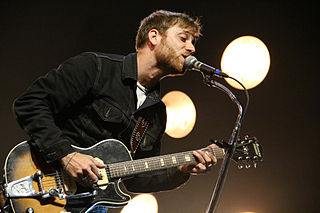A Quote by Deborah Harkness
After 20 years of writing academic prose and lectures, it seems very familiar and straightforward to me. Writing a novel for the first time, I was reminded of just how difficult it is to figure out how to get this stuff done when you don't really know what you're doing.
Related Quotes
When I'm really plugged in I find it difficult to write. It's like digging a well. If you make a void, something moves in to fill it. Writing books is like that. It's mostly about freeing up time, doing nothing, and in that time some writing starts to happen. We need to figure out how to maintain those voids.
I'm sure you feel differently about writing than you did when you first started. When you get older and your brain changes, you have to figure out how your job fits into your life as it changes, you know what I mean? I guess everybody goes through that stuff, and I'm no exception, always trying to figure out what I'm doing with music.
It's interesting how many science fiction writers get going when they are very young. I was on a program with Greg Bear and he mentioned that he had gotten started writing when he was eight. And I began writing when I was 10. I think we're influenced by the stuff, we find it and we love it and we're influenced by it....I know I collected my first rejection slip when I was 13, and I went on collecting them for a long time after that.
I was about 20 when my mom got sick with cancer and it was bad. It was very scary and at the time I was doing my first screenplay and I was on deadline and was alone with my father in Massachusetts. I said, "Pop, you know, I don't how I'm going to work. I don't know how I can get this done. You know, I got to hand this script in and I can't think about anything but Mom." He said, "Well, you know, now is the time when you're going to learn what it means to compartmentalize." And those words really had an impact on me.
I started writing when I was around 6. I say 'writing,' but it was really just making up stuff! I started writing and doing my own thing. I didn't really know what a demo was or anything like that, so I started getting interested in studio gear and started learning about one instrument at a time. My first instrument was an accordion.
It seems to me that one thing people do over and over again is try to figure out how to get married, stay married, fall in love, how to rekindle all this stuff. It seems to me to be a pretty eternal theme so I don't know if you can get typecast from making movies about men relating to women. It seems to be what is going on on the planet a lot.
To make a live record - something that has a lot of life in it - is difficult. After slaving away for years in the studio, when I hear a No Age record or when I hear Yeah Yeah Yeahs' first EP or when I hear DRI or really early punk stuff, it's just so powerful, so raw - and I know how hard that is to create. It's very deceptive. It's like a Dardenne brothers film - it seems like just a handheld camera following some people around in a trailer park, but it's incredibly difficult to do that.
After my first novel, my mother said to me, 'Why don't you make your writing more funny? You're so funny in person.' Because my first novel was rather dark. And I don't know, but something about what she said was true. 'Yes, why don't I?' Maybe I was afraid to be funny in the writing. But since then, seven books later, almost everything I've done has a comedic edge to it.






































